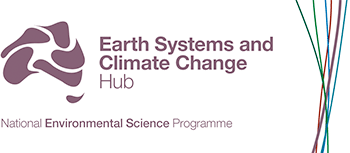Wednesday 13 November 2019, 2.30–3.30 pm (AEDT)
Overview
The Intergovernmental Panel on Climate Change (IPCC) are preparing their Sixth Assessment Report (AR6) for release in 2021. Since 1990 coupled climate models have been the primary scientific tool for informing our understanding of future climate through the IPCC assessments. The World Climate Research Programme’s Coupled Model Intercomparison Project (CMIP) makes simulations from climate models around the world publicly available in a standardised format. This ensures climate simulations are easily accessible and used by researchers worldwide to produce peer-reviewed science that informs the forthcoming IPCC AR6, and provides governments around the world with objective scientific information on climate change, it’s likely impacts and mitigation strategies.
The current phase of this project, CMIP6, features new scenarios and revised experiments to keep pace with advances in climate modelling and our understanding of the climate system. CMIP6 and the 21 associated Model Intercomparison Projects (MIPs) are the most comprehensive suite of climate modelling experiments ever conceived. The experimental design is focused on three broad scientific questions: How does the Earth system respond to forcing? What are the origins and consequences of systematic model biases? How can we assess future climate changes given climate variability, predictability and uncertainties in scenarios?
Earth Systems and Climate Change Hub researchers have developed a new version of Australia’s climate model, the Australian Community Climate and Earth System Simulator (ACCESS-CM2), and have performed a suite of experiments for submission to CMIP6, continuing Australia’s proud tradition of submitting model results for assessment in all IPCC reports.
In this webinar, Dr Simon Marsland introduces the CMIP6 design and experimental protocols and presents results from the ACCESS simulations of past, present and future global climate that are being processed for submission to CMIP6.
Watch the video of the webinar
About the presenter
Dr Simon Marsland is Team Leader of Coupled Climate Modelling in the ACCESS Group of the CSIRO Climate Science Centre. He is a Deputy Chief Investigator of the ESCC Hub Project 5.1- ACCESS Evaluation and Application and was Lead Chief Investigator of the previous Hub Project 2.1- Preparing ACCESS for CMIP6. He has 25 years of experience researching the ocean’s role in global climate. Simon is a member of the WCRP Working Group on Coupled Modelling (which maintains permanent oversight of the CMIP Panel); a Co-Chair of the WCRP/CLIVAR Ocean Model Development Panel; an Adjunct Associate Professor of the Institute for Marine and Antarctic Studies at the University of Tasmania; a Partner Investigator of the Australian Research Council Centre of Excellence for Climate Extremes; and a Review Editor of the forthcoming IPCC AR6 Chapter 9: Oceans, Cryosphere and Sea Level.

